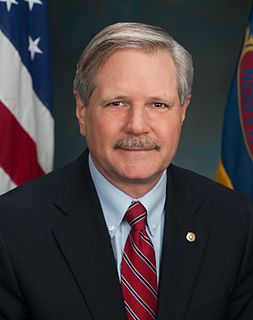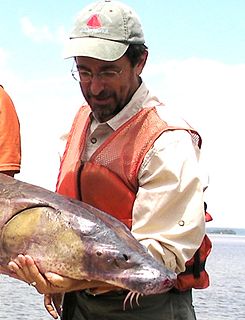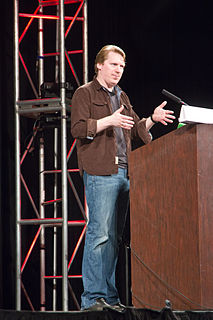Top 1101 Carbon Footprint Quotes & Sayings
Explore popular Carbon Footprint quotes.
Last updated on April 14, 2025.
It's worth remembering that all technology leaves a footprint. For example, our own technology is leaving a footprint in terms of global warming, which could be detected from a long way away. One assumes that a very advanced civilization that has been around maybe millions and millions of years would have an even bigger footprint that might extend beyond its planet to its immediate astronomical environment.
The buckyball, with sixty carbon atoms, is the most symmetrical form the carbon atom can take. Carbon in its nature has a genius for assembling into buckyballs. The perfect nanotube, that is, the nanotube that the carbon atom naturally wants to make and makes most often, is exactly large enough that one buckyball can roll right down the center.
Although reducing human emissions to the atmosphere is undoubtedly of critical importance, as are any and all measures to reduce the human environmental "footprint", the truth is that the contribution of each individual cannot be reduced to zero... If we believe that the size of the human "footprint" is a serious problem (and there is much evidence for this) then a rational view would be that along with a raft of measures to reduce the footprint per person, the issue of population management must be addressed.
Cities, in many ways, are the best repositories for a love affair. You are in a forest or a cornfield, you are walking by the seashore, footprint after footprint of trodden sand, and somehow the kiss or the spoken covenant gets lost in the vastness and indifference of nature. In a city there are places to remind us of what has been.
We see a world of abundance, not limits. In the midst of a great deal of talk about reducing the human ecological footprint, we offer a different vision. What if humans designed products and systems that celebrate an abundance of human creativity, culture, and productivity? That are so intelligent and safe, our species leaves an ecological footprint to delight in, not lament?
You have to realize that, about 20,000 years ago, there was a cataclysmic event when an entire rock face collapsed and sealed off the cave. It's a completely preserved time capsule. You've got tracks of cave bears that look like they were left yesterday, and you've got the footprint of a boy who was probably eight years old next to the footprint of a wolf.
Probably the single-most concrete and substantive thing an American, young American, could do to lower our carbon footprint is not turning off the lights or driving a Prius, it's having fewer kids...we'll soon see a market in baby-avoidance carbon credits similar to efforts to sell CO2 credits for avoiding deforestation.
The first thing we can do as individuals and as communities, like a school or a university or a church, is cut our energy use. Do an energy audit or measure our carbon footprint using online carbon calculators that are free, easy, and cheap. Get a list of the ways that we can stop wasting so much energy and save money.
We're starting with our own carbon footprint. Not nothing. But much of what we're doing is already, or soon will be, little more than the standard way of doing business. We can do something that's unique, different from just any other company. We can set an example, and we can reach our audiences. Our audience's carbon footprint is 10,000 times bigger than ours... That's the carbon footprint we want to conquer.
Cities can be the engine of social equity and economic opportunity. They can help us reduce our carbon footprint and protect the global environment. That is why it is so important that we work together to build the capacity of mayors and all those concerned in planning and running sustainable cities.
My wife and I have purchased two hybrids. We bought a 3 kw photovoltaic unit. We recycle and offset our carbon emissions on the Internet. We turn things off. But we also spend two nice salaries every year, and here's the dirty little secret - our environmental footprint is HUGE, I'm sure. We've all got to do what we can in our individual lives, but we've also got to drive the systemic changes that will make the big differences.
Every company that manufactures something is causing some damage either to the soil or water or air. Most companies treat these as externalities. But the growing movement of sustainability calls for companies to internalize these costs. Once companies do this, they will have a strong incentive to reduce their carbon footprint.
I bargain-shop all the time, but then I started learning about how those products are made and about how if you spend a little bit more money on ethical clothing that are using recycled materials - like, my favorite dresses are by Christy Dawn... the carbon footprint that they're leaving is so minimal, and it's really worth the extra money.
War and, apparently, hurricanes are very good for the oil business. But I've got to believe at a certain point, as a nation, we're going to go in a different direction toward an increased sense of personal responsibility, a lowering of each individual's carbon footprint and a real collaborative effort to help sustain our planet.
Here's the problem - carbon dioxide doesn't contribute to smog and isn't a health threat. All of this is being done because some people believe carbon dioxide is causing global warming, and that preventing carbon dioxide from entering the air is the only answer. Never mind that there is still an ongoing scientific debate about global warming itself, and that some respected climate scientists believe that methane is a better target, California legislators have locked their sites on carbon dioxide.
The only place Al Gore conserves energy these days is on the treadmill. I don't want to suggest that Al's getting big, but the last time I saw him on TV I thought, "That reminds me - we have to do something about saving the polar bears." Never mind his carbon footprint - have you seen the size of Al Gore's regular footprint lately? It's almost as deep as Janet Reno's.
Childfree women are actually great assets to the planet. Our carbon footprint is smaller than a mom's! And we have enough money to write checks to organizations that help kids get vaccinations, vitamins, and educations yet have plenty of free time to advise your daughter that one day she will regret piercing her lip.
Measured against the Problem We Face, planting a garden sounds pretty benign, I know, but in fact it’s one of the most powerful things an individual can do - to reduce your carbon footprint, sure, but more important, to reduce your sense of dependence and dividedness: to change the cheap-energy mind.
I'm interested in humor, and greeting cards just happen to be a perfect medium for my message. They're accessible to everyone, and thanks to all the advances that have been made by environmentally conscientious printers, I can get my message across while keeping my carbon footprint relatively small.
Meatless Mondays is a dead-simple strategy. Anyone can do it, and it doesn’t require major sacrifice. Even if you eat a typical American diet replete with processed, junk and fast food the other six days of the week, going meatless on Mondays will still cut your carbon footprint, improve your health and reduce demand for factory-farm meat.
We have been developing an ever closer relationship with China on climate change for many years which has led to collaboration on carbon trading, offshore wind development, on low-carbon buildings, on nuclear energy, and on carbon capture and storage - to name just some of the ways in which we're working together.


















































